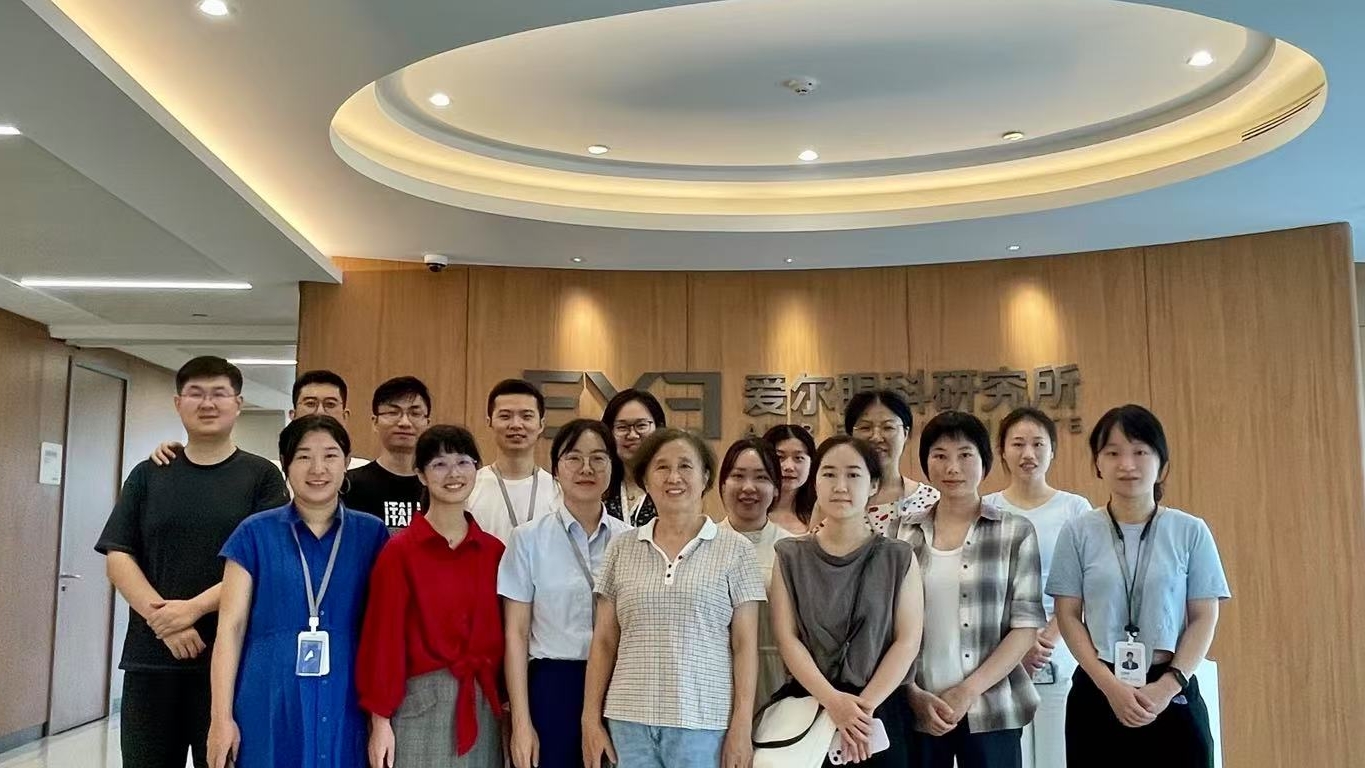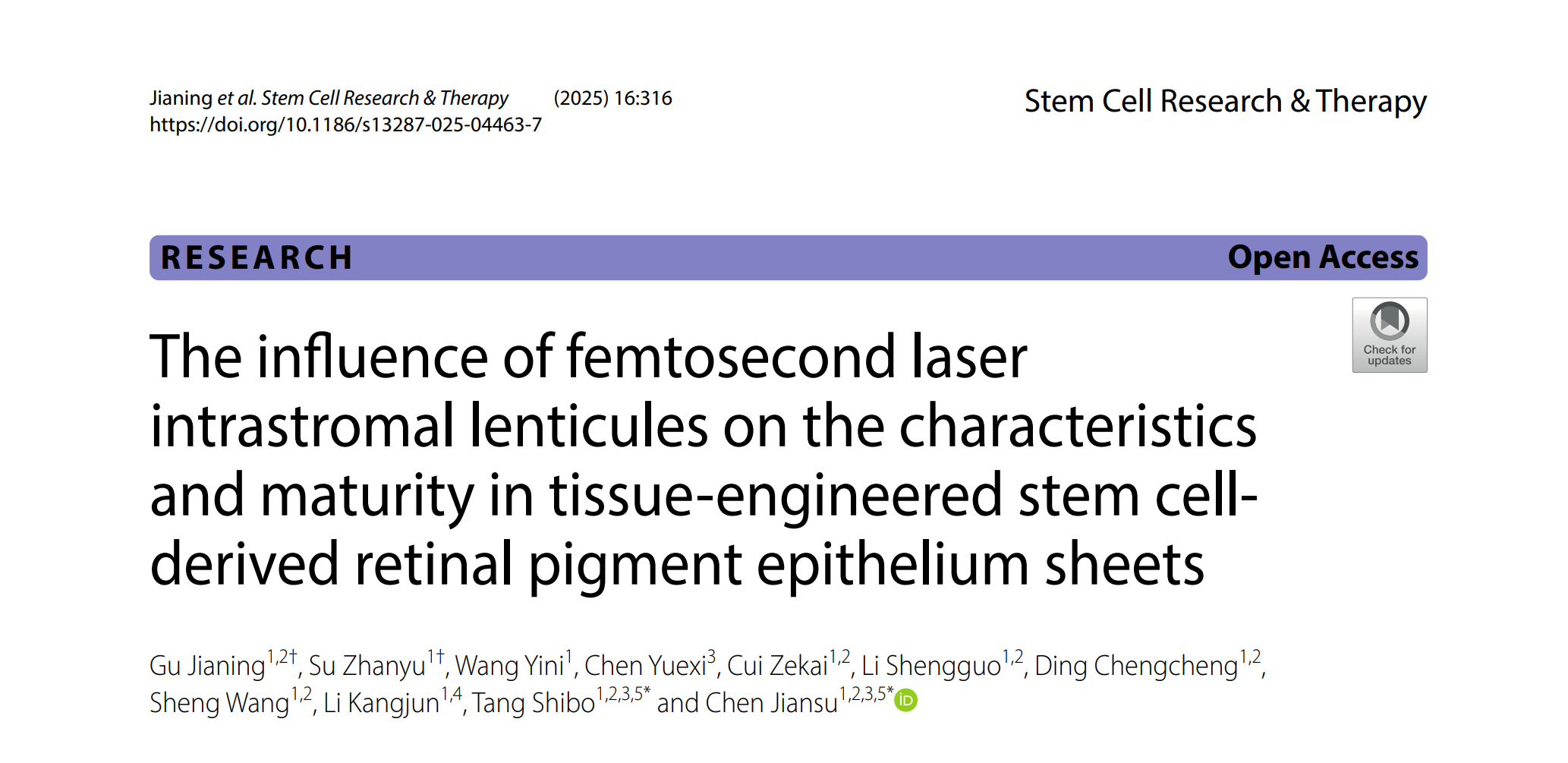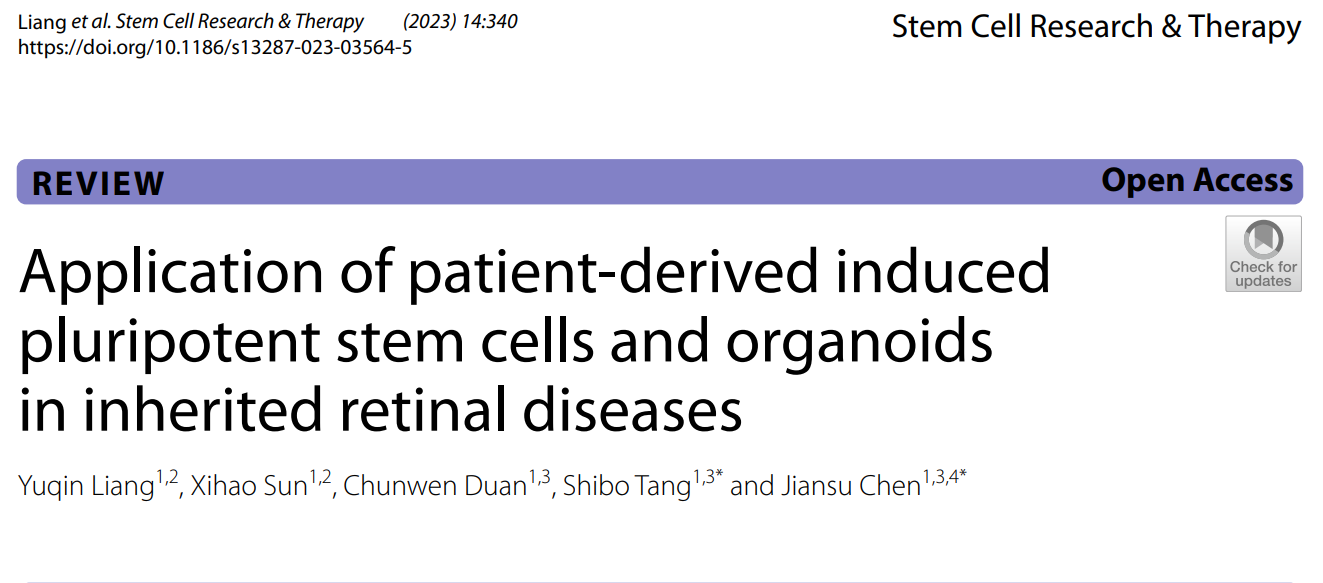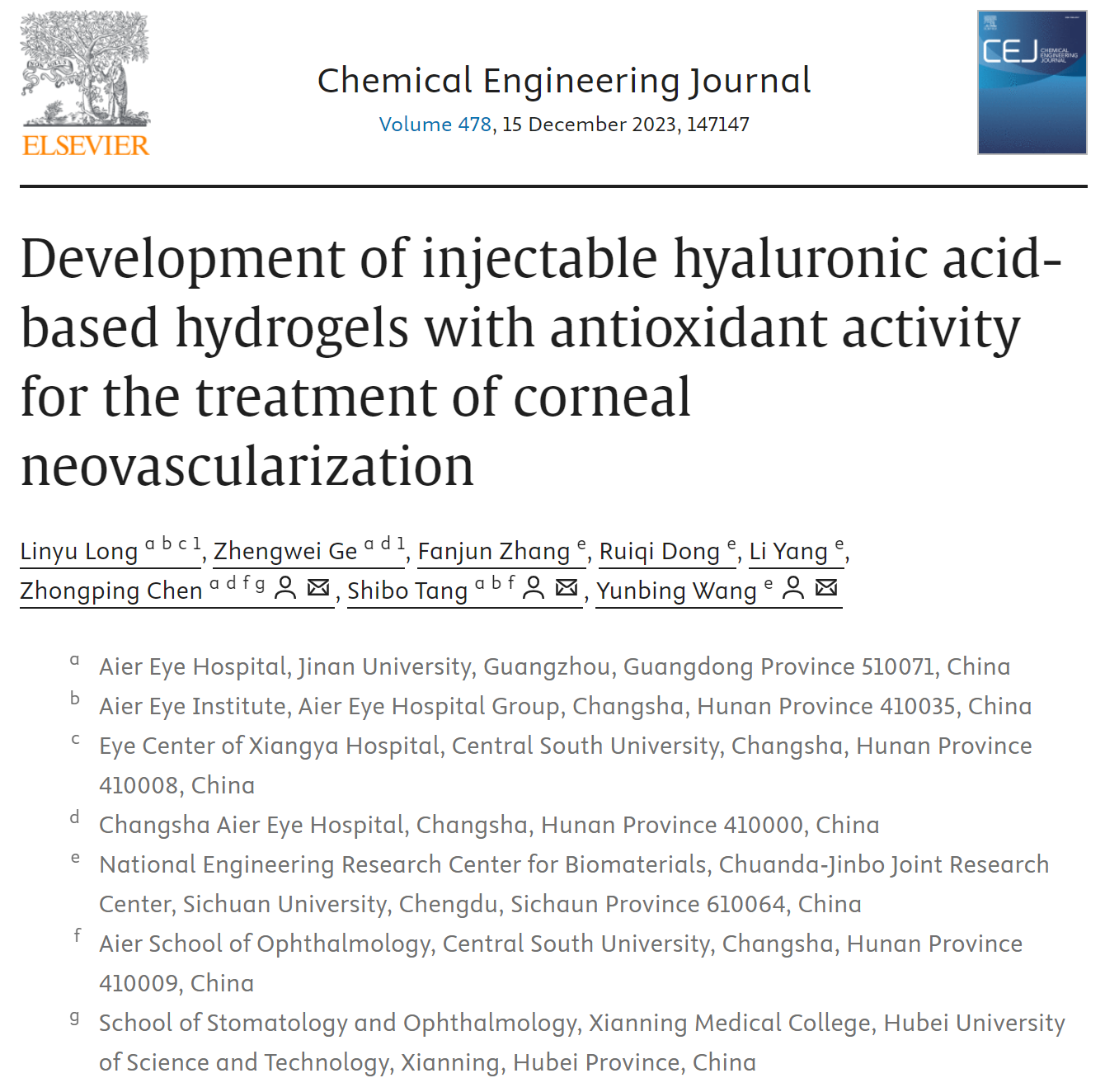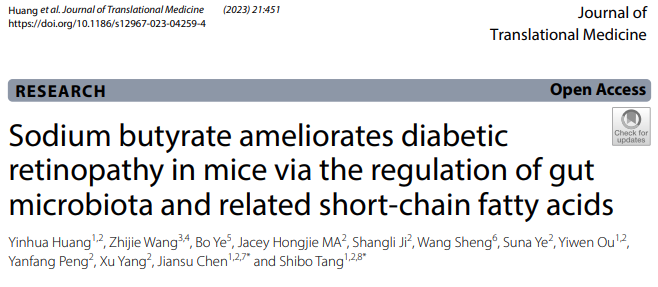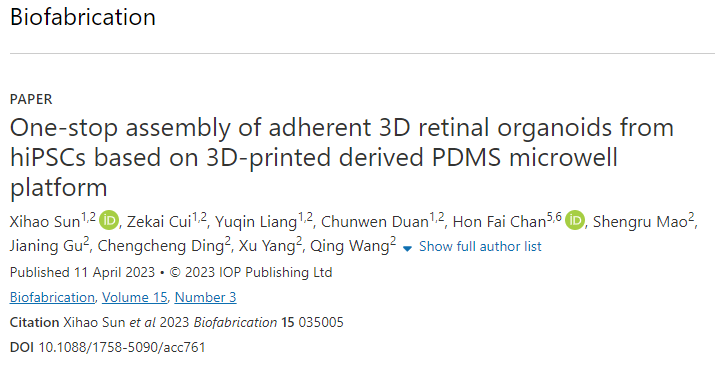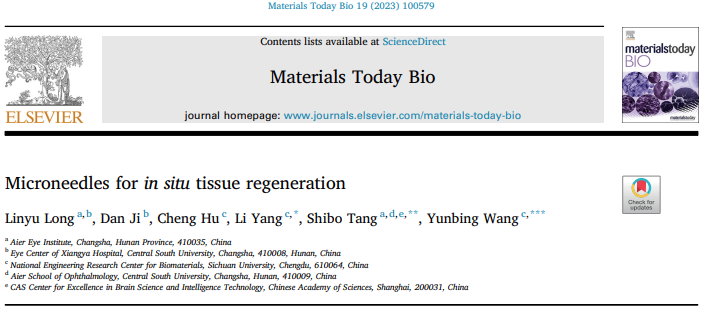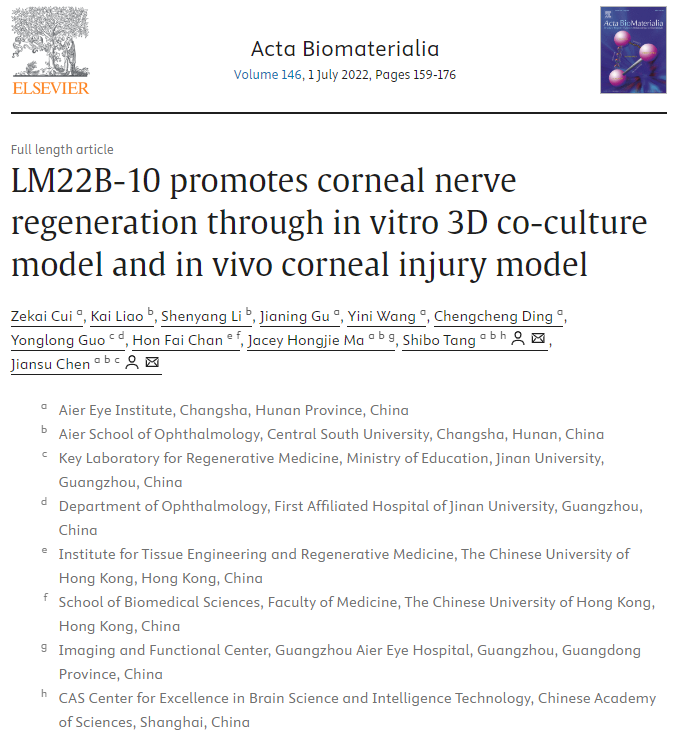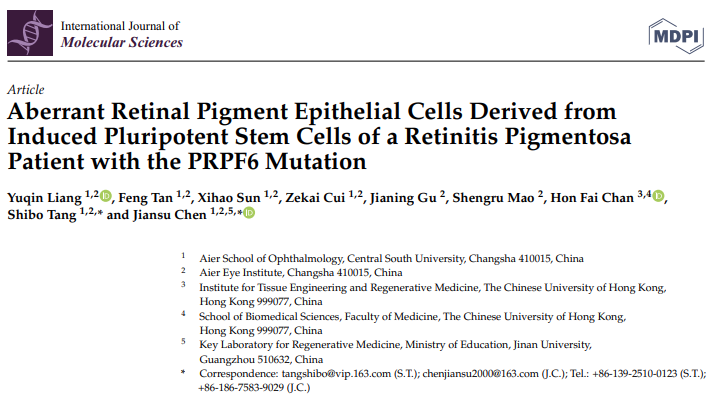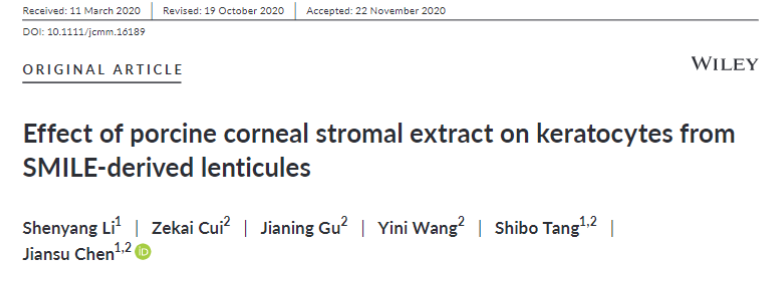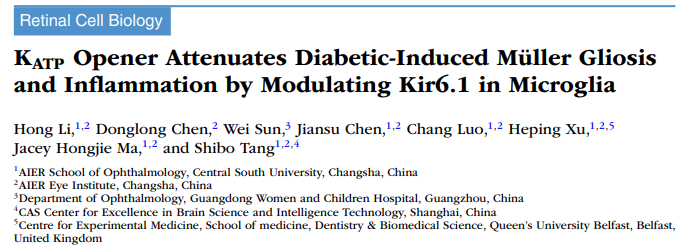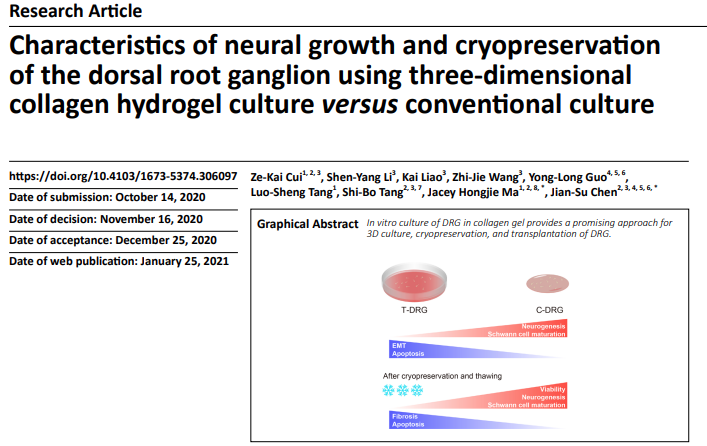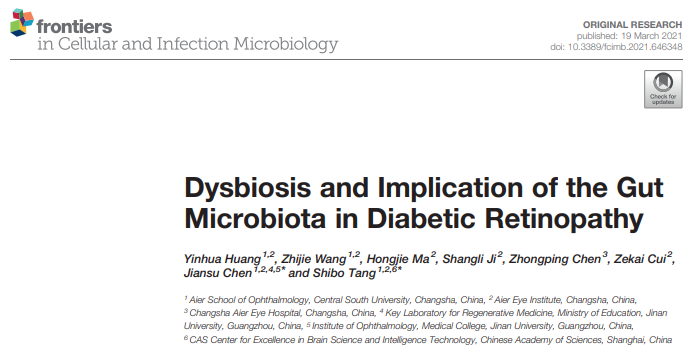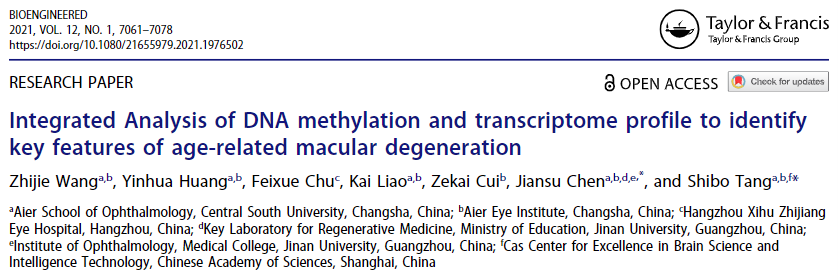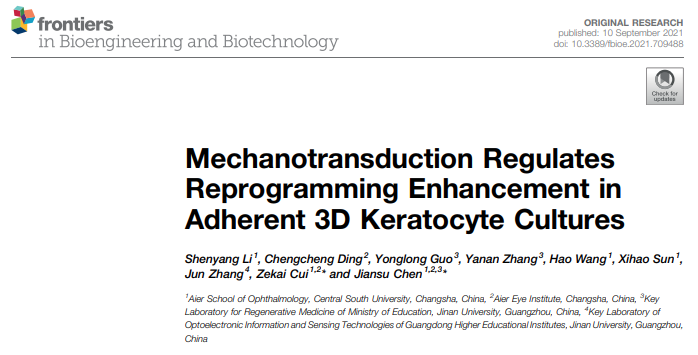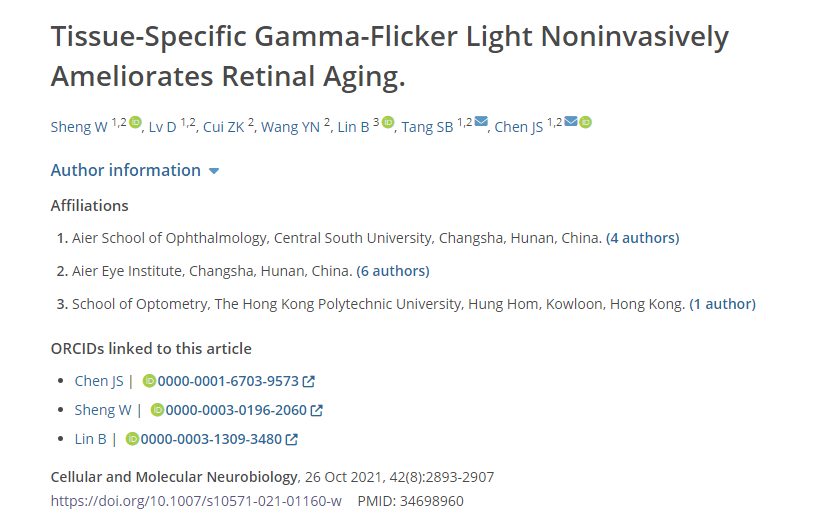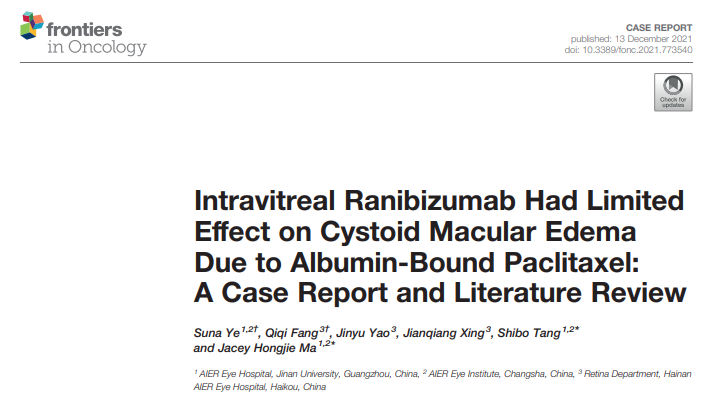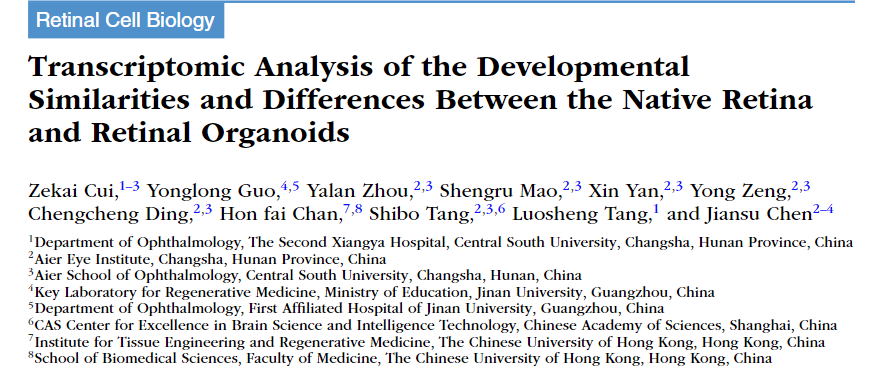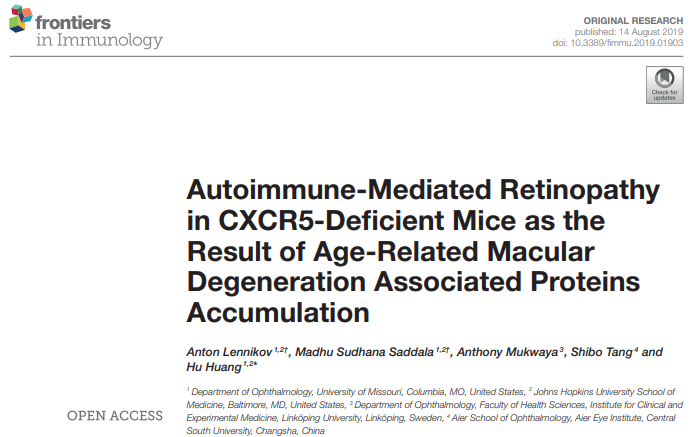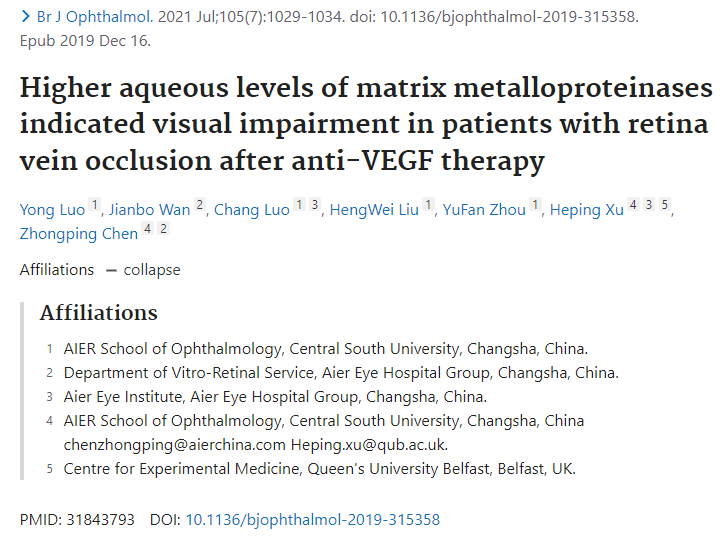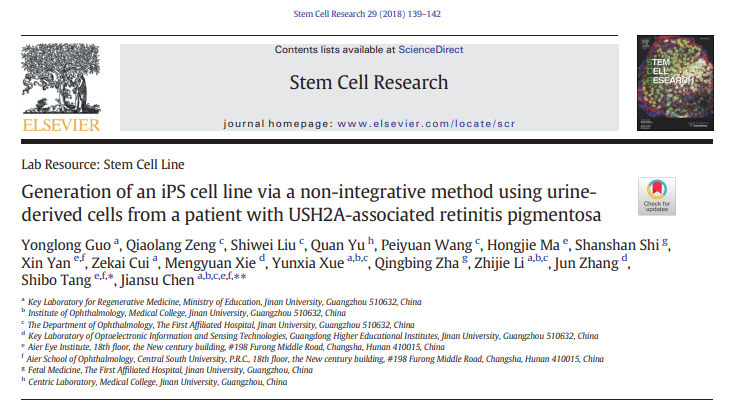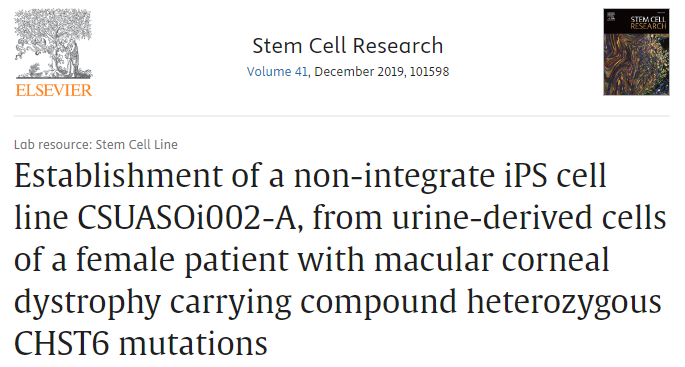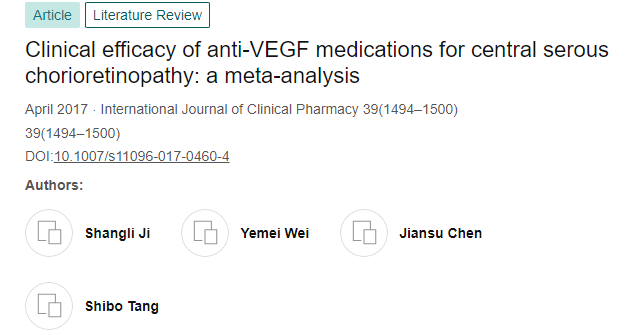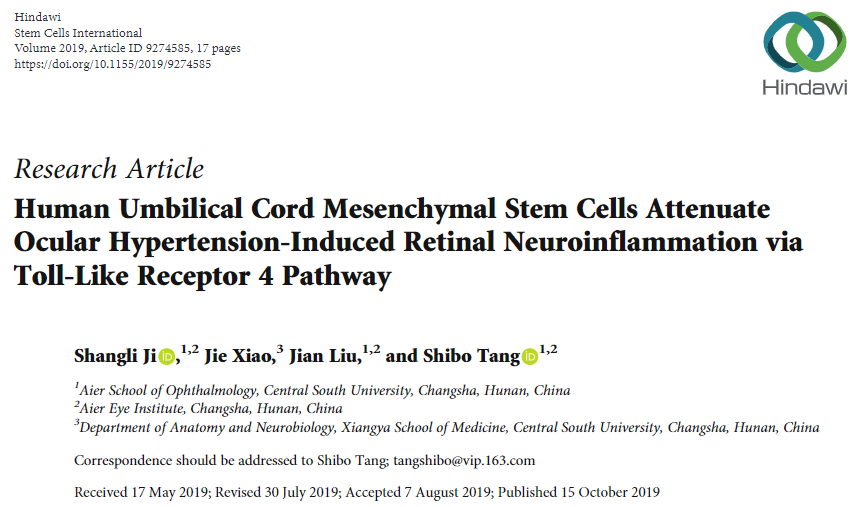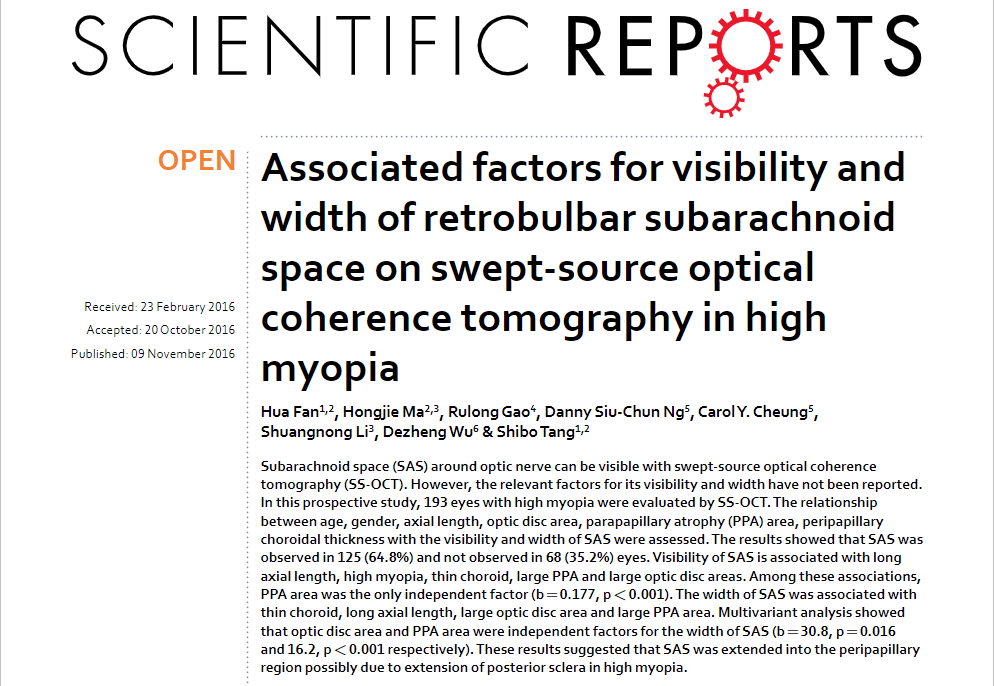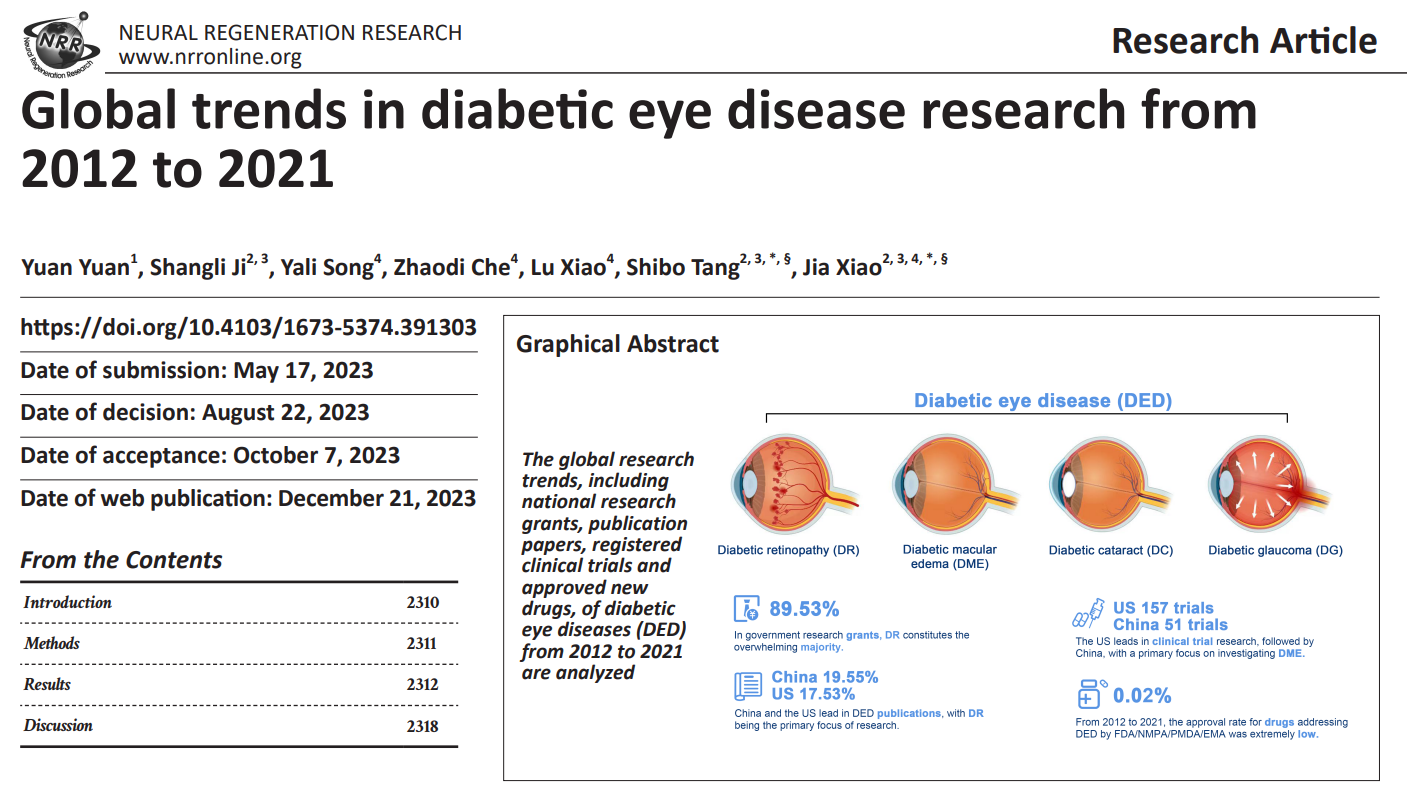- 首页
- 关于我们
概况介绍 研究方向 人才培养 委员会/committee
- 员工团队
特聘专家 主要领导 行政团队 技术团队 PI团队- 科研平台
中心实验室 实验动物中心 生物样本库- 最新资讯
- 首页
- 关于我们
概况介绍 研究方向 人才培养 委员会/committee
- 员工团队
特聘专家 主要领导 行政团队 技术团队 PI团队- 科研平台
中心实验室 实验动物中心 生物样本库- 最新资讯
Inhibition of enhancer of zeste homolog 2 prevents corneal myofibroblast transformation in vitro发布日期: 2024-09-04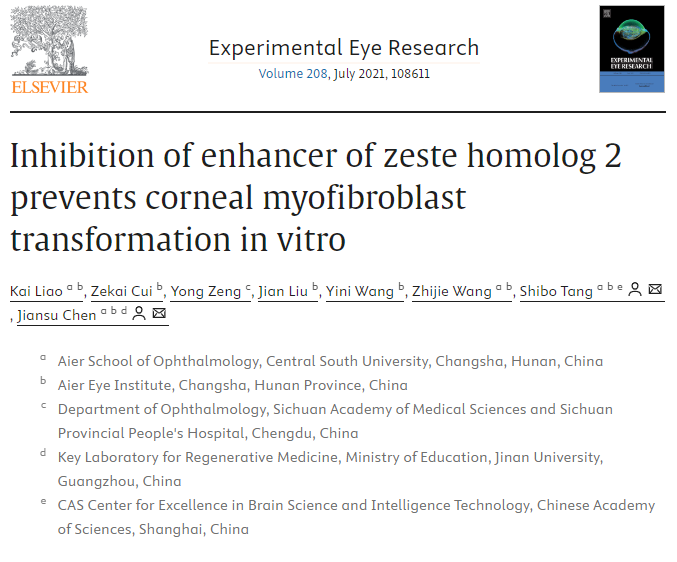
Abstract
Purpose
Corneal fibroblast can be transformed into corneal myofibroblasts by TGF-β1. Enhancer of zeste homolog 2 (EZH2) upregulation has been observed in the occurrence of other fibrotic disorders. We investigated the role of EZH2 in the progression of corneal fibrosis and the antifibrotic effect of EZH2 inhibition in corneal fibroblasts (CFs).
Methods
Primary CFs were isolated from corneal limbi and the CFs were treated with TGF-β1 to induce fibrosis. EPZ-6438 and EZH2 siRNA were used to inhibit EZH2 expression. Myofibroblast activation and extracellular matrix (ECM) protein synthesis was detected by quantitative real-time PCR, western blotting, and immunofluorescence staining assay. The functions of myofibroblast were evaluated by cell migration and collagen gel contraction assays. Molecular mechanisms involved in EZH2 inhibition were investigated by RNA sequencing.
Results
TGF-β1 activated EZH2 expression in CFs. Treatment with EPZ-6438 (5 μM) and EZH2 siRNA considerably suppressed corneal myofibroblast activation and ECM protein synthesis in CFs induced by TGF-β1 when compared to the control group. EPZ-6438 (5 μM) suppressed cell migration and gel contraction in CFs. RNA sequencing results revealed that antifibrotic genes were activated after EZH2 inhibition to suppress corneal myofibroblast activation.
Conclusion
Inhibition of EZH2 suppresses corneal myofibroblast activation and ECM protein synthesis, and could serve as a novel therapeutic target for preventing corneal scarring.
相关文章-
Generation of vascularized retinal organoids containing microglia based on a PDMS microwell platformAbstractRetinal organoids (ROs) offer a biomimetic in vitro model for inves...2025-10-24
-
近期,爱尔眼科长沙医学中心陈建苏教授、唐仕波教授、崔泽凯副教授团队在角膜损伤修复和视网膜疾病治疗方面研究取得了多项令人瞩目的成果,为了解致盲性角膜和视网膜疾病的...2025-08-04
-
近日,由中国医师协会眼科医师分会遗传眼病学组牵头制定的《X连锁视网膜劈裂症临床诊疗的中国专家共识(2025)》(以下简称《共识》)正式发布。X连锁视网膜劈裂症是...2025-07-07
-
AbstractBackground Recent advances in clinical trials have involved the transpla...2025-05-06
-
Inherited retinal diseases (IRDs) can induce severe sight-threatening retinal de...2024-09-11
-
Corneal neovascularization (CNV) is a condition that can severely adversely affe...2024-09-05
-
Diabetic retinopathy (DR) is a common complication of diabetes and has a high pr...2024-09-04
-
Diabetic retinopathy (DR) development is associated with disturbances in the gut...2024-09-04
-
The three-dimensional (3D) retinal organoids (ROs) derived from human induced pl...2024-09-04
-
Tissue injury is a common clinical problem, which may cause great burden on pati...2024-09-04
-
Corneal nerve wounding often causes abnormalities in the cornea and even blindne...2024-09-04
-
Pre-mRNA processing factors (PRPFs) are vital components of the spliceosome and ...2024-09-04
-
Propagating large amounts of human corneal stromal cells (hCSCs) in vitro while ...2024-09-04
-
This study aimed to determine the effect of pinacidil, a nonselective KATP chann...2024-09-04
-
In vertebrates, most somatosensory pathways begin with the activation of dorsal ...2024-09-04
-
The pathogenesis of type 2 diabetes mellitus (T2DM) is commonly associated with ...2024-09-04
-
Corneal fibroblast can be transformed into corneal myofibroblasts by TGF-β1.2024-09-04
-
Age-related macular degeneration (AMD) is a common vision-threatening disease. T...2024-09-04
-
Suspended spheroid culture using ultralow attachment plates (ULAPs) is reported ...2024-09-04
-
本申请涉及细胞和器官培养技术领域,公开了一种三维类器官灌流培养器具,包括:细胞培养室,细胞培养室用于盛放培养基;多个换液槽,设于细胞培养室,用于更换细胞培养室中...2024-09-04
-
Purpose: Retinal inflammation is involved in the pathogenesis of several retinal...2024-09-03
-
Aging is a risk factor for multiple retinal degeneration diseases. Entraining br...2024-09-03
-
Angiographically silent cystoid macular edema (CME) is a rare complication from ...2024-09-03
-
The neuroretina is protected by its own defense system, that is microglia and th...2024-09-03
-
Purpose: We performed a bioinformatic transcriptome analysis to determine the al...2024-09-03
-
Previous research has shown that CXCR5−/− mice develop retinal degeneration (RD)...2024-09-03
-
Purpose: To investigate the levels of matrix metalloproteinases (MMPs) in aqueou...2024-09-03
-
In vitro generation of a functional retinal pigment epithelium (RPE) monolayer s...2024-09-03
-
We have established an induced pluripotent stem (iPS) cell line using urine-deri...2024-09-03
-
Purpose: The purpose of this study is to investigate the potential therapeutic b...2024-09-03
-
We report the human induced pluripotent stem cell line (iPSC) CSUASOi002-A, gene...2024-09-03
-
Background Central serous chorioretinopathy (CSC) is a widespread retinal disord...2024-09-03
-
Glaucoma is characterized by progressive, irreversible damage to the retinal gan...2024-09-03
-
Subarachnoid space (SAS) around optic nerve can be visible with swept-source opt...2024-09-03
-
Diabetic eye disease refers to a group of eye complications that occur in diabet...2023-05-01
- 员工团队
- 员工团队



